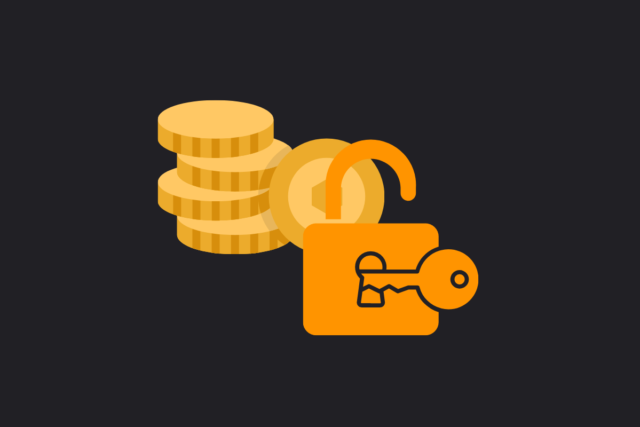With Russia’s invasion of Ukraine internationally condemned, one thing is certain: no one knows exactly how things will unfold.
So far, this disturbing uncertainty has not led markets to a sustained decline. US equities took a hit in the week of the invasion but have since recouped some of those losses.
But the market is likely to experience more volatility as events unfold.
“It’s hard to know what’s going to happen,” said Mari Adam, a certified financial planner in Florida. “We just don’t know.”
But if you’re worried that geopolitical turmoil could negatively affect your savings and investments, here are some ways to assess your situation and protect yourself against potential losses.
Don’t trade amid headlines
Breaking news about rising energy and food prices or discussions about a possible world war or nuclear attack are unnerving.
But history often shows that making financial decisions based on an emotional response to major events is often a losing proposition in the long run.
“Making a radical change in the midst of all this uncertainty is often a decision you will regret,” said Don Bennyhoff, chief investment officer at Liberty Wealth Advisors and former investment strategist at Vanguard.
Look back at times of war and other crises in the last century and you’ll see that stocks typically came back faster than anyone could have expected at the time, and did well on average over time.
For example, since the financial crisis in 2008, the S&P 500 has returned 11% annually on average through 2021, according to data analyzed by First Trust Advisors. The worst year in that period was 2008, when stocks dropped 38%.
But in most of the years that followed, the index recorded a gain. And four of their annual earnings ranged between 23% and 30%. If you go back to 1926, that S&P average annual return was 10.5%.
“Staying the course can be tough on your nerves, but it can be healthier for your portfolio,” said Rob Williams, managing director of financial planning, retirement income and wealth management at Charles Schwab.
This is not to discount the seriousness of nuclear threats and the chance that this period could diverge from historical patterns.
But if things really did pick up globally, Williams noted, “we’d have more to worry about than our investment portfolios.”
Rather than making changes based on your reaction to recent events, first review your financial situation holistically.
Cover your short-term financial needs
It’s always a good idea, but especially when faced with major events outside of your control, make sure you have liquid assets for your most urgent needs.
This means enough money set aside in cash, money market funds, or short-term fixed-income instruments to cover short-term tax payments, unexpected emergencies, and any major future expenses (eg, a down payment or tuition).
This is also advisable if you are near or in retirement, in which case you may want to have enough liquidity to cover a year or more of the living expenses you would normally pay with withdrawals from your wallet, Williams said.
This should be the amount you would need to supplement your fixed income payments such as Social Security or Private Pension.
In addition, Williams suggests having two to four years in lower volatility investments, such as a short-term bond fund.
This will help you weather any market downturn, should it occur, and give your investments time to recover.
Review your risk tolerance
It’s easy to say you have a high risk tolerance when the S&P 500 keeps setting records. But you have to be able to withstand the volatility that inevitably comes with investing over time.
So review your holdings to ensure they are still in line with your risk tolerance for a potentially tougher path ahead. And while you’re at it, find out what it means for you to “lose” money.
“There are many definitions of risk and loss,” Bennyhoff said.
For example, if you’re saving money in a savings account or CD, any interest rate you’re earning will likely be outweighed by inflation. So while you preserve your principal, you lose purchasing power over time.
So again, if it’s more important to preserve the principal for a year or two than to risk losing any part of it—which can happen when you invest in stocks—this inflation-based loss might be worth it to you because you’re getting paid. what Bennyhoff calls “smooth return to sleep”.
That said, for long-term goals, find out how comfortable you are with risking to get a bigger return and prevent inflation from eating away at your savings and earnings.
“Over time, you get better and more secure as a person if you can increase your wealth,” said Adam.
Rebalance your portfolio
Given the record returns of stocks in recent years, now might be a good time to rebalance your portfolio if you haven’t done so in a while.
For example, said Adam, you might be overweight in growth stocks.
To help stabilize her returns in the future, she suggested perhaps reallocating some money to slower-growing, dividend-paying stocks through a mutual fund.
Make new investments slowly
If you have a large amount of money—perhaps you just sold your business or home, or received an inheritance or large bonus—you may wonder what to do with it now.
Given all the global uncertainty, Adam recommends investing in smaller chunks periodically — for example, every month for a set period of time — rather than all at once.
“Expect your investment over time, as this week’s news will be different than next week’s news,” she said.
reevaluate assumptions
In the months leading up to Russia’s invasion of Ukraine, the Federal Reserve was expected to raise interest rates several times this year to contain high inflation.
Now? Maybe not so much.
“The short-term effects on the US economy of the invasion of Ukraine, the ongoing war, sanctions and future events remain highly uncertain,” Federal Reserve Chairman Jerome Powell told lawmakers Wednesday. ). “Given the current situation, we need to act carefully.”
That could push up government bond prices and lower rates if investors look to US Treasuries as a safe haven on a sustained basis.
And that could mean that interest rates on savings may not rise as high as they could when everyone expected the Federal Reserve to raise rates substantially this year.
Do your best
Remember: it is impossible to make perfect choices, as no one has perfect information.
“Collect your facts. Try to make the best decision based on these facts, in addition to your individual goals and risk tolerance.” said Adam. Then she added, “Let it go.”
Source: CNN Brasil
I am Sophia william, author of World Stock Market. I have a degree in journalism from the University of Missouri and I have worked as a reporter for several news websites. I have a passion for writing and informing people about the latest news and events happening in the world. I strive to be accurate and unbiased in my reporting, and I hope to provide readers with valuable information that they can use to make informed decisions.







